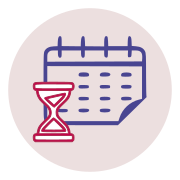 Focus on prioritizing increasing income and enhancing life satisfaction rather than solely focusing on maximizing cost savings.
Focus on prioritizing increasing income and enhancing life satisfaction rather than solely focusing on maximizing cost savings.
While it’s crucial to be frugal and mindful of spending for financial stability, there comes a point where excessive emphasis on cutting living costs can be counterproductive.
Accumulating wealth becomes more attainable with dedicated focus and expertise in a field where others are willing to pay you for what they want done.
Idea for Impact: Forget about articles that preach how much money you save in a lifetime if you skip that everyday fix of an Iced Caramel Cloud Macchiato at Starbucks. Work on making so much dough that those crafted lattes become but a tiny rounding error in your personal finances.
 If you find meditation challenging, you’re not alone. Quieting the mind,
If you find meditation challenging, you’re not alone. Quieting the mind,  Taking a breather and jotting down your thoughts can help shake off that
Taking a breather and jotting down your thoughts can help shake off that  Yes, it’s hard to hit the ground running in the morning. It’s tempting to mark easy tasks off your to-do list—switching over your laundry or checking email in a few minutes, but you never stop there. The sense of accomplishment you’ll get from such small things usually never builds up.
Yes, it’s hard to hit the ground running in the morning. It’s tempting to mark easy tasks off your to-do list—switching over your laundry or checking email in a few minutes, but you never stop there. The sense of accomplishment you’ll get from such small things usually never builds up. Whenever someone requests something from you, or when you embark on a task yourself, it’s essential to always establish a clear deadline.
Whenever someone requests something from you, or when you embark on a task yourself, it’s essential to always establish a clear deadline.